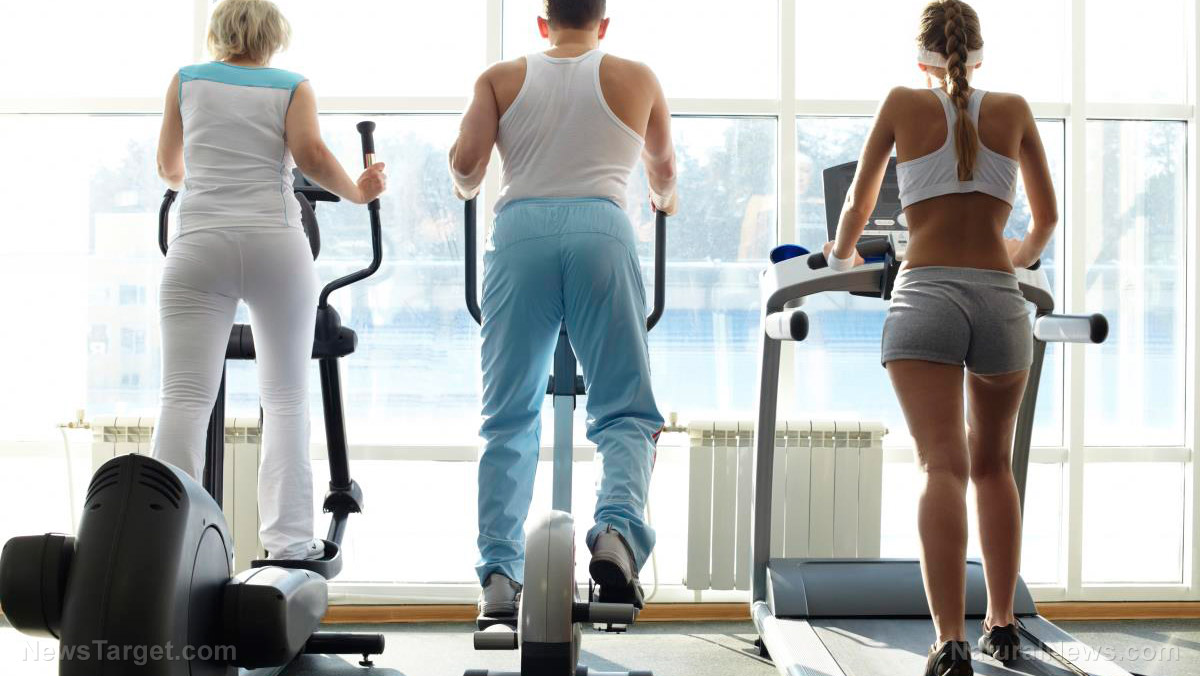Short duration, high-intensity resistance exercise training programs can dramatically improve insulin sensitivity in overweight men: Study
05/23/2019 / By Michelle Simmons

People who are overweight are often advised to exercise to lose weight. Now, a study finds that this not only aids in weight loss but also in improving insulin sensitivity. The paper, published in the journal Experimental Physiology, suggests a six-week short duration, high-intensity exercise training program to significantly improve insulin sensitivity, as well as muscle size and strength in overweight men.
Insulin sensitivity describes how sensitive the body’s cells are to the effects of insulin, the hormone responsible for controlling blood sugar and energy absorption. When insulin sensitivity is reduced, blood sugar levels increase. Short-term insulin sensitivity can result in feelings of fatigue but can contribute to heart disease and stroke over time.
For the study, researchers from the University of Glasgow recruited 10 overweight men who trained thrice a week for six weeks. For each training session, the participants performed a single set of nine standard resistance exercises, including leg presses and bicep curls, performed at 80 percent of their maximum single repetition lift until volitional failure. The researchers measured the participants’ muscle size, muscle strength, and insulin sensitivity before and after the training period.
The results showed that insulin sensitivity increased by 16 percent following the exercise program. Muscle size and strength increased after only two weeks of training and continued to increase throughout the study. These findings indicated that short duration, high-intensity exercises effectively improves insulin sensitivity, which may be more appealing and attainable compared with longer duration exercises.

“On top of these results, we know that the gym is not for everyone. Therefore, we also need to see if we can get people doing similar exercises at home without gym equipment, to achieve similarly beneficial effects,” said Stuart Gray, the lead researcher of the study.
Understanding short duration, high-intensity workouts
Many people don’t exercise because they think they don’t have the time to do it. Fortunately, there is a type of exercise that does not consume too much time but is beneficial. Instead of spending an inordinate amount of time at the gym, you may opt for a short duration, high-intensity workout, also known as high-intensity interval training (HIIT).
This type of workout involves repeated bursts of intense exercise alternated with shorter recovery periods and takes much less time to complete. In addition, slow-duration, high-intensity workouts also increases the body’s VO2 max, the body’s ability to sustain physical activity and an indicator of your level of aerobic fitness. It is best to do this exercise for two to three times a week at max because of the intensity of these sessions. Give your body time for rest and recovery.
Short duration, high-intensity workouts can be done on a treadmill, bike, or elliptical trainer. Regardless of the exercise you choose, it is important to start it with a warmup. For HIIT, it’s best to warm up for five to 10 minutes. (Related: How 1 Minute of HIIT May Have Benefits of 45 Minutes of Moderate Cardio.)
Then, pick your ratios. If you are new to this, start with a short-intensity period and a longer recovery period, such as one minute of activity to two minutes of recovery. The recovery period does not mean stopping entirely but walking or slowly jogging. You could set the speed to 8 to 10 miles per hour (mph) for the high-intensity period and around 3.5 mph for the recovery period. However, you may also change the settings to what feels right for you. Repeat this pattern eight times, and then end with a five-minute cool-down walk.
Sources include:
Submit a correction >>
Tagged Under:
blood sugar, diabetes, exercise, fitness, high-intensity interval training, high-intensity workout, HIIT, insulin, insulin sensitivity, Men's Fitness, men's health, natural cures, natural medicine, natural treatment, obesity, overweight, research, short duration, slender, workout
This article may contain statements that reflect the opinion of the author





















